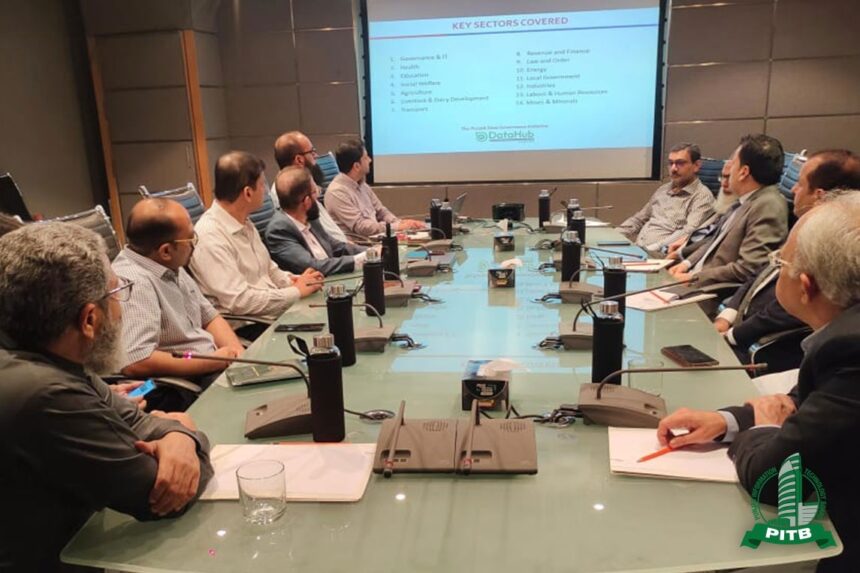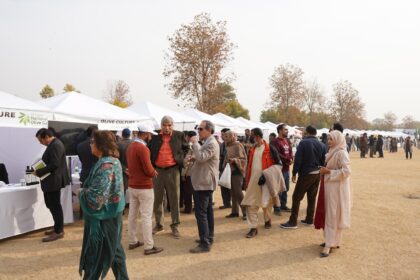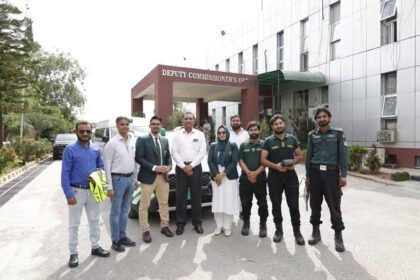A high-level delegation composed of UNICEF representatives and senior officials from Sindh’s School Education & Literacy Department visited the Punjab Information Technology Board (PITB) to study technology-focused initiatives driving digital transformation in Punjab’s education and governance sectors. The visit aimed at exploring scalable ICT solutions that could potentially be replicated in Sindh to improve public-sector education and governance.
The delegation received a warm welcome from PITB senior personnel, including Director General (DG) IT Solutions Waqar Naeem Qureshi, Directors Shahid Akram Khan and Rana Abid Mehmood, along with Joint Director Sajjad Qureshi. The visiting team was given detailed briefings on various PITB-led technology interventions that have significantly transformed governance processes and enhanced efficiency in numerous government departments across Punjab.
DG IT Solutions, Waqar Naeem Qureshi, began the session by highlighting PITB’s central role in facilitating digital governance through innovative, scalable and adaptable ICT frameworks. He underscored how PITB has leveraged cutting-edge technology to streamline government operations and enhance service delivery across the province.
Director Shahid Akram Khan demonstrated key software solutions, including the Training Management System (TMS) and Financial Reporting System (FRS). He explained how these technologies have simplified administrative processes, improved transparency of financial operations, and increased effectiveness of training activities within public-sector entities.
Director Rana Abid Mehmood presented the centralized data analytics dashboard, detailing its role in supporting data-driven policy decisions and effective resource management. He elaborated on the PITB’s use of advanced artificial intelligence (AI) techniques to boost performance, governance outcomes, and efficiency across multiple governmental units.
Joint Director Sajjad Qureshi briefed the delegation specifically on the IT interventions undertaken within Punjab’s education sector. He explained how these interventions have significantly improved administrative capacities, streamlined operations, and elevated the overall effectiveness and quality of education service delivery in the province.
Expressing their appreciation towards PITB, the delegation praised the organization’s exemplary contributions to digital transformation in the public sector. They recognized the tangible impact that PITB’s technology strategies have made, commending its scalable solutions as valuable models for replication not only in Sindh but in other provinces across Pakistan as well.











